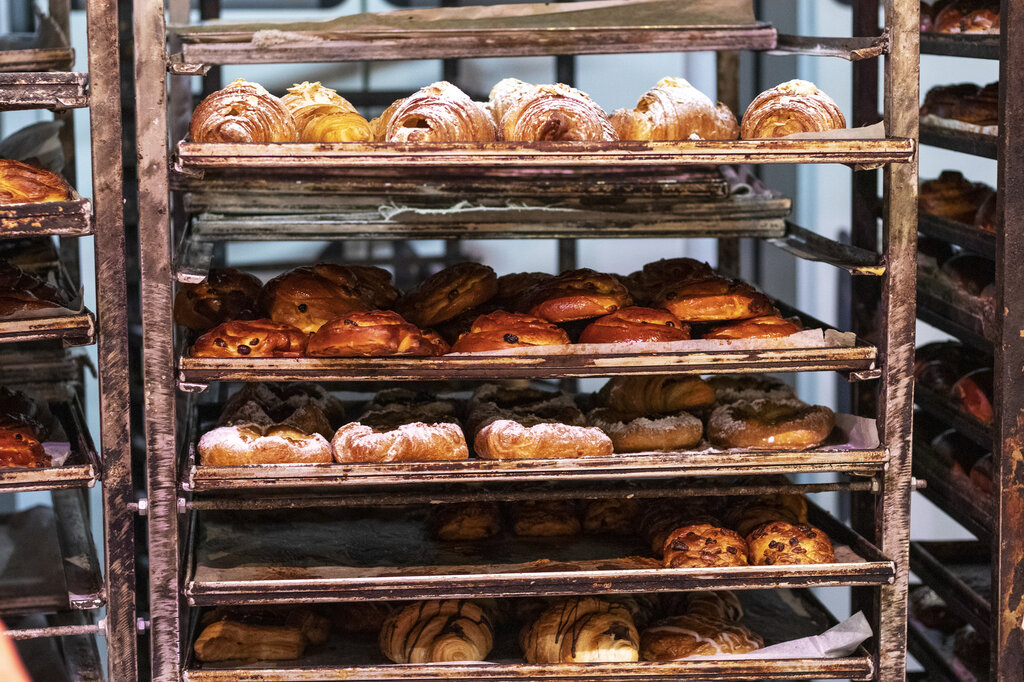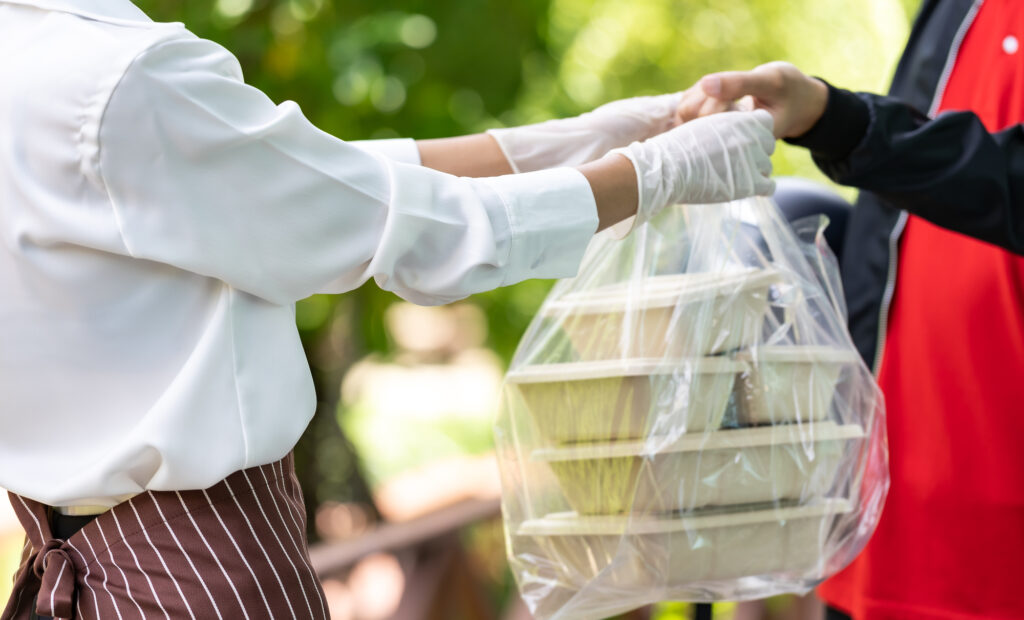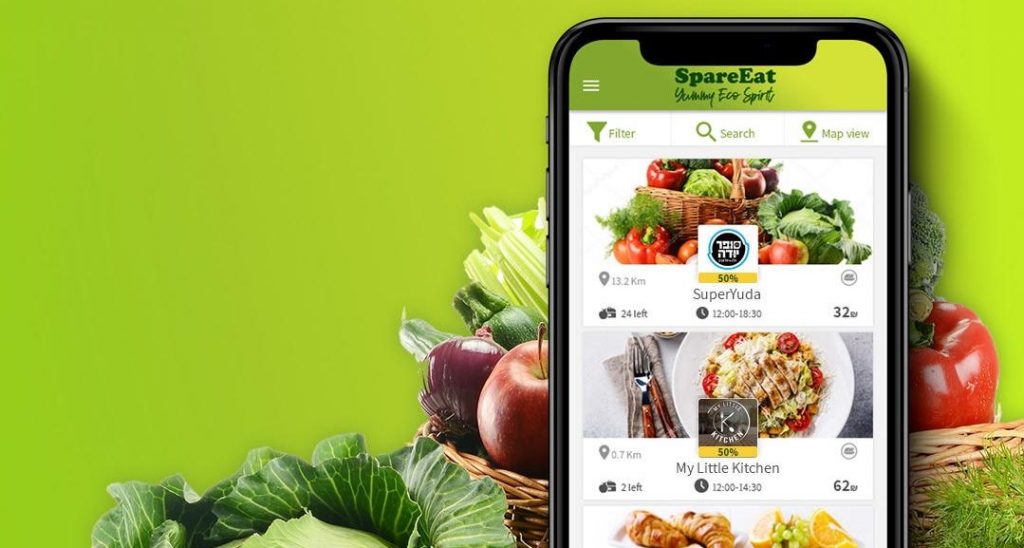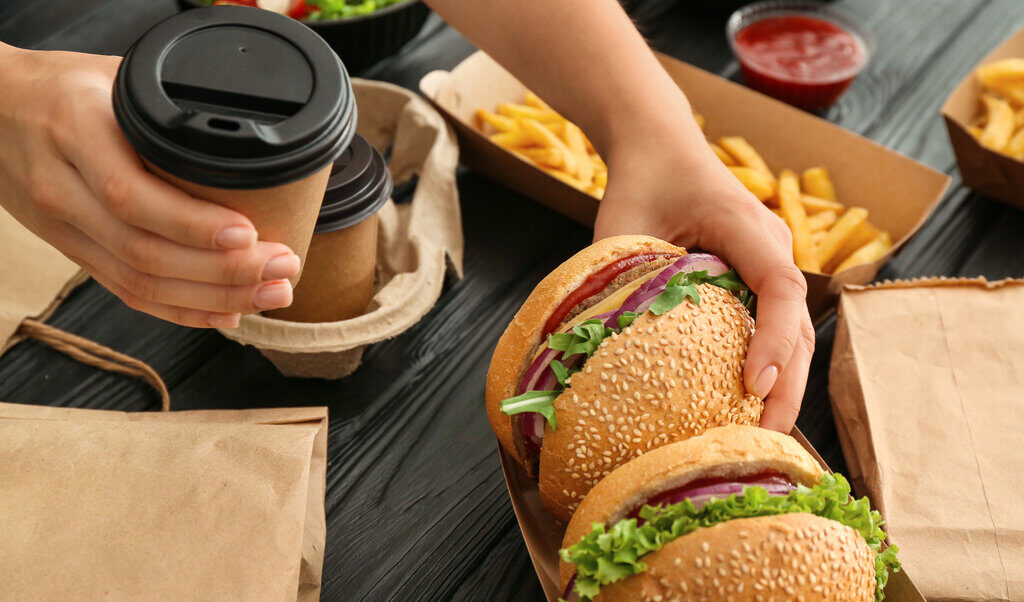Israel, the land flowing with milk and honey, is wasting millions of tons of its food every year. In fact, according to Leket Israel, the country’s leading food rescue organization, over one third of all the food that it produces gets thrown away.
An Israeli startup is looking to put a dent in this statistic by providing bakeries, delis and other food establishments with a platform to specifically sell the food products remaining at the end of the day, which would otherwise be trashed.
SpareEat’s app lets Israelis purchase “surprise bags” of pastries, sandwiches, produce and more at heavily discounted prices, helping food businesses prevent food waste while still turning a profit.

Unlike other food-saving apps, it does not specify what the user will receive in each bag that they buy. Instead, it gives descriptions of the possible options they could receive, as food establishments cannot guarantee which products will remain in stock at the end of the day.
This, says SpareEat co-founder Jonathan Fischer Toubol, makes the app an easy and effective method for food businesses to cut down on their food waste as well as for consumers to snap up some bargains in Israel’s pricey food market.
“It’s a really great tool because it’s giving the businesses the right solution to empty their shelves at the end of the day,” he explains. “What you get depends on what remains.”
Since relaunching last August, SpareEat has partnered with nearly 200 Israeli businesses – all in Tel Aviv or in other central cities – and has approximately 80,000 registered users.
Users who purchase a bag of food through the app must go to the food establishment in person to pick up their purchase, as it cannot be delivered to them.

Fischer Toubol says that this in-store only feature was intentional, because apart from the logistics and costs involved to include a delivery feature in the app, the small businesses will actually benefit more from the additional foot traffic.
“We live in a period where food delivery services dominate, which takes people away from these businesses because they can just wait on their sofa to get the food,” he says.
“We only do pickup so that people can discover a shop through the application and become new customers.”
Other food-saving platforms normally charge businesses a monthly fee to advertise their unsold goods, says Fischer Toubol.
SpareEat, on the other hand, earns a small commission on each bag that is sold within the app, which allows businesses to partner with the platform for free.
Sign up for our free weekly newsletter
SubscribeThat commission, Fischer Toubol says, is the lowest available when compared to other food-saving platforms.

“We really take the minimum amount possible to continue developing the application and making it available to everyone,” he says.
“Obviously we want to earn money, but we really see the positive impact that the app has on businesses, and even more during this very complex period in Israel.”
And as far as Fischer Toubol knows, there are no other food rescue apps like this in Israel.
SpareEat, which is headquartered in Tel Aviv, was initially founded in 2019 by cousins Laetitia Jessner and Elie Fischer, but shut down in 2020 after Israeli COVID-19 regulations restricted people from picking up food in person.
“It was impossible to develop this app during this period,” says Fischer Toubol, who was working for the company at the time. “But I must say that it allowed us to learn from our mistakes and changed the concept a little.”
He relaunched the app with Jessner in August, three years after it closed, and says it has received even more users and traffic the second time around.

Last month, the SpareEat app launched a new donation feature as part of a collaboration with the Yad LaTet (A Hand to Give) organization, helping to provide weekly Shabbat meals and equipment to soldiers fighting in the Gaza Strip against the Hamas terror group.
The startup has raised over 7,000 shekels (approx. $1,884) since then, and has used the funds to supply the organization with vegetables and other ingredients needed for these meals. Over 600 meals have been distributed to the soldiers in the last three weeks.
“We continuously try to find new ways of helping out,” Fischer Toubol says.
“There is a real demand for such an app from both the businesses and the customers. And it’s good for businesses, good for customers, and good for the environment.”
Related posts

Resilient And Nutritious New Plant-Based Milk Aims To Make A Splash

Chocolate From Cultivated Cocoa Comes Without Environmental Toll

Plastic Fantastic: Startup Takes PVC Back To Its Crude Oil Roots




Facebook comments